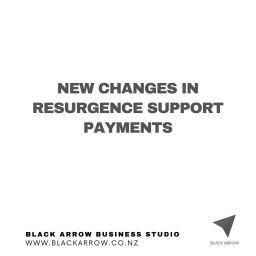
Buying a business or franchise at a reasonable price can offer significant benefits compared to starting from the ground up, as a considerable amount of groundwork is already completed. To evaluate the advantages and disadvantages, here’s a comprehensive overview.
Purchasing an established business is economically sensible for various reasons. Firstly, you bypass the risky initial stage when a significant number of businesses shut down. In addition, you also obtain:
- customers
- premises
- a brand
- experienced staff
- suppliers
- long-term contracts
- a business plan
- good financial record or rating.
If you have identified a business that interests you, follow these steps:
- Conduct thorough research on the business, its market, industry, suppliers, and competitors.
- If you wish to proceed, express your formal interest in purchasing the business to the individual responsible for managing the sale.
- Engage a professional advisor to communicate with the owner’s representative. Seeking expert advice is essential, and having a lawyer or accountant on your team can also strengthen your position as a buyer.
- Inquire with the owner about the reason for selling the business. Compare their response with the financial data presented in the sales documents, such as the information memorandum.
How to research your market competitors
In order to obtain comprehensive information about a business that is up for sale, potential buyers are required to execute a confidentiality agreement. Such sensitive information typically encompasses particulars about the accounts, customers and suppliers.
After formally expressing your interest, you can initiate due diligence, which involves comprehending a business’s assets, liabilities, and commercial viability. This process aims to verify the narrative presented by the owner regarding their business.
During the due diligence process, it is crucial to verify the following:
- Any ongoing legal disputes, such as those involving intellectual property rights.
- The ownership of critical assets, including property, equipment, vehicles, and intellectual property, ensures that they can be sold to the buyer.
- All contractual agreements encompass those related to employment, sales, supply, rent, and service levels.
- Key staff, who they are, level of knowledge about business operations, and the likelihood of departure after the sale.
- The degree of loyalty displayed by customers and suppliers towards the current owner, as it can impact the value of the business’s goodwill and, consequently, the price you will pay for it.
Learn about the types of intellectual property
Ask your accountant to scrutinise the books for the following:
- Potential areas for improvement
- Trends pertaining to debts, revenue, and stock to ascertain the impact of seasonal demand or legal alterations
- Substantiated bases for the financial projections you have received
Cross-reference the information from the books with independent sources, such as media reports, to determine the business’s position within its industry.
Your accountant should also handle the following tasks:
- Analysing the inventory levels and inquiring about any excessive stock.
- Reviewing the debts and evaluating the business’s efficiency in collecting outstanding payments.
A business can be divided into two components: goodwill and assets.
Goodwill pertains to the overall health of the business, including its customer base, reputation, and revenue generation. A business with robust goodwill may command a higher purchase price. Conversely, if the business has been neglected, its assets may account for the majority of the purchase price.
Engage a professional valuer to assess the total value of the assets. If the owner is demanding an overinflated price, it’s worth checking if this is related to the business’s goodwill. If not, it may be wise to walk away from the deal.
Checklist of common business assets
Engage your lawyer to draft a clear and legally binding contract for the sale.
The contract should include details such as the sale price, payment terms, and other crucial provisions, such as:
- Restraints of trade prevent the seller from starting a similar business in the same market.
- Provisions regarding employee retention.
- A buffer period to allow for financial due diligence.
You may propose a gradual handover arrangement where you pay the sale price using your profits over time.
Some sellers may prefer this arrangement as it assures them that the business will be in capable hands and is more likely to succeed under the new ownership.
If the business you intend to purchase is a registered company, its details will be available on public record with the Companies Office.
After acquiring the company, the seller is required to notify the Companies Office of any changes to the directorship or shareholder structure.
Advice on registering with government agencies
GST
The sale and purchase agreement should specify whether the sale is inclusive or exclusive of GST. If this information is not included, discuss this matter with the seller.
The applicable GST rate on the sale could be 15% or 0%, depending on various factors such as the GST registration status of both parties. The agreement should also outline the GST rate that applies to the sale.
Zero-rated GST: Sale of a going concern — Inland Revenue
Income tax
Purchasing a business can have significant income tax implications. The wording of the sale and purchase agreement can impact these implications. Therefore, it is advisable to seek guidance from an accountant or tax adviser before proceeding with the purchase.
If the business you are purchasing has the existing staff, the sale and purchase agreement should clearly specify whether you will be taking over their employment.
If the transfer of employment is not included in the sale, you can either negotiate new employment agreements with the existing staff or seek new employees. If you do not require the services of the current staff, it is the seller’s responsibility to handle any redundancies before the business is transferred to you.
More information on what to do when making someone redundant
The redundancy process will be influenced by the current employer’s existing employment agreements and the size of the business. In some cases, businesses with 19 or fewer employees may be exempt from certain restructuring requirements.
Furthermore, the redundancy process may vary depending on whether the employees are classified as vulnerable workers. Employees in specific industries may be subject to special conditions:
- cleaning and food catering services
- laundry services in education, health or age-related residential care sectors
- orderly services in health or age-related residential care sectors
- caretaking services in the education sector.
Find out more about employee protection provisions — Employment Agreement Builder
Company authority — Companies Office
Consider seeking out current franchise owners and gathering information about their experiences with the franchise before deciding to purchase it.
A franchise refers to a subsidiary of an established business brand, whereby the brand’s owning company provides licenses to use its trademark for commercial operations under specific terms and conditions.
Instances of franchises comprise:
- restaurants, cafes and takeaways
- retail stores
- car dealerships
- real estate
- supermarkets
- cleaning
- gardening
- convenience stores
- dry cleaners.
Similar to purchasing a business, investing in a franchise offers various benefits over starting a new business from the ground up, which include:
- proven strategies and processes
- established brand
- skipping the risky start-up phase
- guidance and assistance from the franchisor during the initial stages.
However, franchises also entail limitations on your ability to make decisions and impact branding, operations, and expansion.
- Most franchises offer: Brand rights and signage – Most franchise buyers must: Use company marketing materials and strategies
- Most franchises offer: Training and advice – Most franchise buyers must: Hit financial targets and follow set processes and policies
- Most franchises offer: Advertising support – Most franchise buyers must: Advertise in a certain way
- Most franchises offer: Shop fittings, equipment, supplies and stock – Most franchise buyers must: Use approved suppliers
Members of the Franchise Association of New Zealand (FANZ) who operate as franchisors agree to adhere to a set of guidelines that require them to:
- furnish a disclosure document containing vital information
- provide a seven-day cooling off period or alternatively, include mediation services in the contract
Enlist the services of a franchise lawyer to review any agreement prior to signing it. Furthermore, FANZ extends free courses and consultation services to individuals who purchase franchises.
In addition, it’s advisable to:
- Verify the continuing expenses that you’ll be obligated to incur such as advertising and inventory costs.
- Request a disclosure document that presents the company’s past and present performance, even if it’s not affiliated with FANZ. A reputable company should possess one.
- Finish the cost-free online training offered by FANZ.
Are you struggling with accounting and business management for your business? We are here to help! Get in touch with us to discuss how our expert services can support your business’s success. Contact us today to schedule a free consultation and see how we can add value to your operations.















